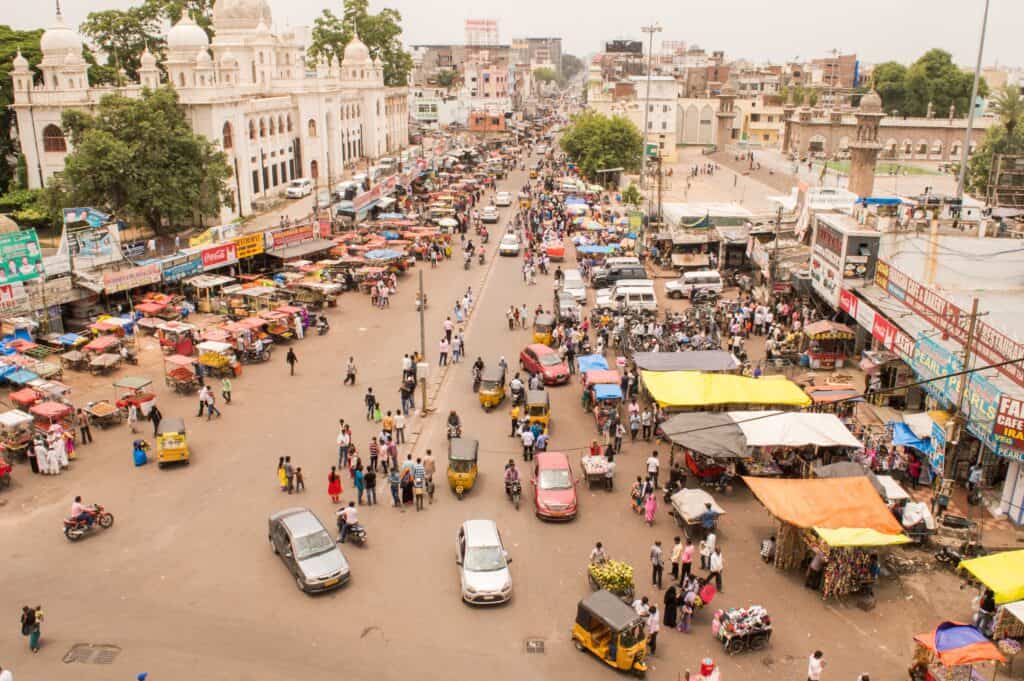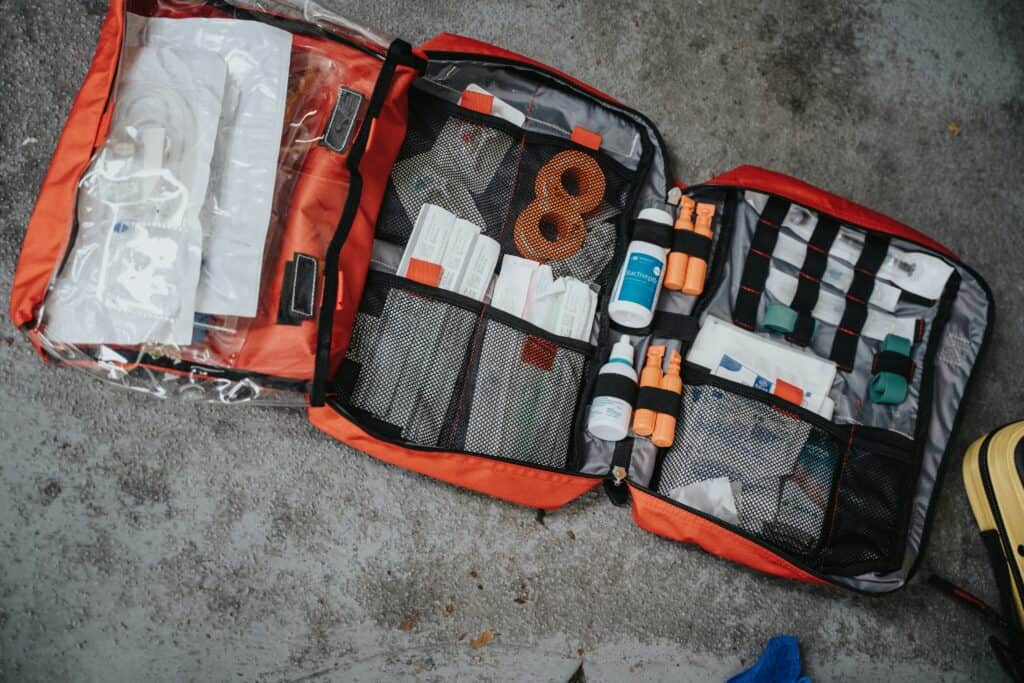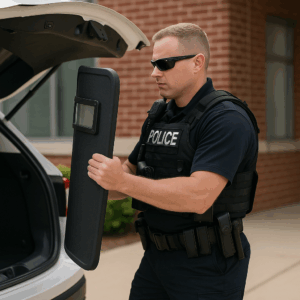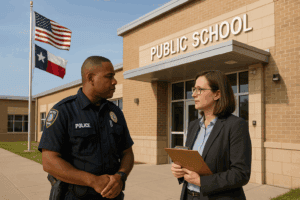Traveling abroad can present certain risks, and one of the most common and distressing situations travelers may face is being a victim of theft or robbery. While the experience can be frightening and upsetting, it’s essential to know what steps to take after the incident and how to safeguard yourself to minimize the impact if such an event occurs.
When travelers fall victim to crimes like pickpocketing, pilfering from hotel rooms, or luggage theft from public transportation, it can leave them feeling vulnerable and disoriented in an unfamiliar environment. It is crucial to act quickly and decisively to protect your personal information and valuables. In many cases, travelers must cancel their bank and credit cards, report the crime to local authorities, and contact their respective embassy or consulate for support.
By understanding what to do after being robbed abroad and implementing preventive measures, travelers can regain control, continue with their journey, and potentially minimize the damage. Being well-informed and prepared will not only provide peace of mind during your travels but will also ensure that you handle the situation efficiently and effectively should a theft occur.
Before Your Trip
Before embarking on any trip abroad, it is essential to properly prepare and take the necessary steps to ensure safety and security. One of the first things to consider is obtaining travel insurance that covers theft or loss of personal belongings. This insurance will prove extremely helpful in case of any unfortunate incident involving theft or crime at your destination.
It’s vital to make multiple copies of important documents such as passports, identification, and your itinerary. Keep the original documents safe and separate from the copies. Additionally, U.S. citizens should register with the Smart Traveler Enrollment Program (STEP) to receive updates about safety conditions and allow the embassy to contact them in case of an emergency.
When packing for your journey, consider leaving your expensive jewelry and non-essential valuables at home to minimize the risk of theft. If it’s necessary to bring these items, store them in a secure place like a hotel safe.
Before departing, gather information about your destination and the common types of theft or crime that occur in the area. Consult travel advisories and stay up-to-date about the local situation through news outlets or local sources. This knowledge will help you take necessary precautions and plan activities accordingly.
Plan your itinerary cautiously and make sure to share it with a trusted friend or family member who can monitor your whereabouts during the trip. Familiarizing yourself with key locations such as the nearest police station can also save time in case you need to file a crime report or an insurance claim.
In summary, preparing well before your trip abroad is crucial to minimize the risk of theft and ensure a safe, enjoyable journey. Remember to secure travel insurance, leave valuables at home, make copies of essential documents, and stay informed about your destination’s safety conditions for a smooth and hassle-free experience.
Immediate Steps After the Robbery
Experiencing a robbery while traveling abroad can be a distressing situation. However, it’s essential to remain calm and take some immediate steps to ensure your safety and minimize the impact of the incident.
Firstly, find a safe place where you can assess the situation and gather your thoughts. Panic will not help you in this unpleasant situation. Instead, try to stay as composed as possible and think rationally about the next steps.
Once you are in a secure location, contact the local police department to report the robbery. Remember to provide them with all the necessary details, including the location of the incident, and a description of the suspects and stolen belongings. Filing a police report is crucial, as it can increase the chances of recovering your possessions and help with any insurance claims or other necessary documentation later on.
In addition to contacting the police, inform your family or friends back home about the situation. They can offer emotional support and may be able to provide some assistance, such as sending emergency funds or helping cancel stolen credit cards.
While waiting for the police to arrive, reach out to any available local help, such as your hotel staff, tour guide, or other travelers. They can provide valuable advice and assistance, including helping you communicate with the police if there is a language barrier.
Finally, make a list of all the stolen items, including their estimated value and any relevant information. This will help you prepare for the police report and insurance claims process. Also, consider taking pictures of any notable damages or the location of the incident as evidence.
By following these immediate steps after being robbed while traveling abroad, you can maintain control of the situation and increase your chances of recovering stolen belongings and getting back to enjoying your trip as quickly as possible.
Handling Stolen Credit and Debit Cards
When traveling abroad, it’s crucial to know the steps to take if your credit or debit cards are stolen. Taking immediate action can help prevent further damage and minimize potential losses.
First, contact your card issuers, such as Citi, Chase, or any other bank that has issued your cards. Inform them about the theft so they can cancel your cards and prevent unauthorized transactions. Most credit card companies have a 24/7 customer service hotline that you can access even when you’re overseas.
In addition to contacting your card issuers, consider filing a police report in the country where the theft occurred. A police report can help establish a theft record, which might be necessary for any insurance claims or future issues relating to the incident.
It’s essential to follow up with your bank and credit card companies in writing. Send a letter to the address designated for billing disputes (credit cards) or errors (debit cards), confirming that you have reported the fraudulent charges or withdrawals. Include the date and time when you first noticed the card’s absence and when you reported the loss. This written documentation can further strengthen your case against unauthorized charges.
To mitigate the risk of identity theft, monitor your accounts closely for any suspicious activity. Regularly check your credit report to ensure everything is accurate. If you notice any discrepancies, report them to the credit reporting agencies immediately.
Ensuring your cards are protected before traveling can bring peace of mind. Set up account notifications with your bank or credit card companies to receive alerts of any unusual activity. Another option is to use a card with a security chip and a personal identification number (PIN), offering increased security compared to cards with only a magnetic strip.
In conclusion, taking prompt and appropriate action can help minimize the impact of stolen credit and debit cards while traveling abroad. Remember to contact card issuers, file police reports, provide written documentation, and monitor your accounts to keep your finances safe.
Lost or Stolen Passport Procedures
When a passport is lost or stolen while traveling abroad, it’s essential to act quickly and follow the proper procedures to replace it. If you find yourself in this situation, the first step is to report the missing passport to the nearest U.S. embassy or consulate. You can also report the loss or theft by phone to the State Department at 1-877-487-2778 (TTY 1-888-874-7793) or by mailing in a completed Form DS-64.
After reporting the incident, the next step is to apply for a new passport or an emergency passport. To do this, complete the DS-11 application for passport and gather the necessary documents, which include proof of U.S. citizenship and a recent passport photo. If you are outside the United States, you must submit the application in person at the nearest U.S. embassy or consulate.
In addition to the application, you will need a statement describing the circumstances of the loss or theft. The embassy or consulate staff can help you prepare this statement. It is crucial to note that once you have reported your passport as lost or stolen, it becomes invalidated and cannot be used for international travel, even if you find it later.
During this process, it’s essential to stay in contact with the U.S. embassy or consulate for updates and assistance. They can provide guidance on obtaining an emergency passport if needed, which allows you to return to the United States or continue your travels.
Overall, the procedure for replacing a lost or stolen passport involves reporting the incident, completing the necessary paperwork, and staying in communication with the nearest U.S. embassy or consulate. Following these steps will help ensure a smooth process and minimize disruptions to your travel plans.
Financial Assistance in Emergencies
Traveling abroad can sometimes come with unexpected situations, such as being robbed. In such cases, accessing financial assistance to cover your essential expenses becomes crucial. Here are some options and tips to help you in emergency situations.
First, it’s essential to contact the nearest U.S. embassy or consulate. They can provide you with urgent financial assistance if you’re a destitute U.S. citizen. Reach out to the U.S. Department of State, Office of Overseas Citizens Services, at (888) 407-4747 (or from overseas +1 202-501-4444). They can inform you about the assistance options and eligibility requirements.
Another option you can consider is securing emergency funds through American Citizens Services (ACS). Every U.S. consulate has an ACS department dedicated to assisting American citizens abroad with emergency financial support.
Here are some additional tips for handling your financial needs in case of an emergency:
- Coins and cash: Keep a small amount of local currency hidden somewhere in your belongings or on your person. This can help you pay for essentials like food, transportation, or phone calls when you lose access to your primary funds.
- Money transfer services and prepaid cards: Before leaving for your trip, research available money transfer services and options in your destination country. Familiarize yourself with their requirements and fees. Prepaid travel cards are another useful tool to have as a backup.
- Travel insurance: Investing in a comprehensive travel insurance policy can provide financial coverage for any emergencies abroad, including theft. Ensure your policy covers emergency cash reimbursements and trip cancellations or disruptions.
- Hotel safety: Ensure you’re staying at a reputable hotel that offers safety features such as secure lockers or safes. Keep your valuables secure in the hotel safe and make sure to lock your room while you’re away or sleeping.
- Emergency contacts: Keep a list of emergency contacts, both at home and in your destination country. This includes the local embassy or consulate, your travel insurance provider, and trusted friends or family members who might be able to help with financial support in emergencies.
In conclusion, being prepared for unexpected situations, such as theft while traveling abroad, can help you manage your finances and secure the necessary assistance. By following these tips and knowing the available resources, you can confidently navigate financial emergencies during your trip.
Travel Insurance Claims
Travel insurance is an important consideration for anyone embarking on international trips, as it can provide financial protection in the event of theft or robbery. When dealing with a robbery abroad, it is essential to understand the steps for filing a travel insurance claim to recover the costs and losses incurred.
To begin the insurance claim process, contact your travel insurance provider as soon as possible to inform them of the incident. Make sure you have your policy information handy when making the call. Your provider will guide you through the necessary steps and requirements to proceed with the claim. Oftentimes, this may include filing a police report within 24 hours of the incident, detailing every lost item and the circumstances of the robbery as mentioned by RoamRight.
Gather and provide the required documentation to your travel insurance company. This may encompass the police report, receipts for lost items, flight information, and any other relevant documents. The sooner these documents are submitted, the quicker the claim process will be.
In some cases, travel insurance policies with trip interruption benefits may reimburse travelers for reasonable transportation expenses to return home early if they miss at least 50% of the length of their trip due to a robbery or other covered reasons. Ensure that you understand the terms and conditions of your policy to make the most of these benefits.
It is important to remain patient yet persistent throughout the claims process. Travel insurance companies may take time to review documentation, contact necessary parties, and make a decision. Follow up with them regularly to ensure that your claim is moving forward and to obtain any necessary updates.
By understanding the steps involved in filing a travel insurance claim after a robbery abroad, travelers can have more peace of mind and focus on resolving the situation and continuing with their journey.
Avoiding Robberies During Travel

Traveling abroad can be an exciting adventure, but it’s essential to take precautions to protect yourself and your belongings from potential theft. By implementing these strategies, you can minimize the risk of being robbed and reduce the impact if it does happen.
First and foremost, do your research. Knowledge is power, and by properly researching your destination, you can avoid high-risk areas. Check for travel advisories that warn about dangerous locations or common crimes in a particular country. Being aware of your surroundings and staying alert can greatly reduce the likelihood of theft or robbery.
Make sure to secure your belongings. Use zipped pockets, money belts, or locked storage to keep your possessions safe during your travels. Whenever possible, lock your bags to deter opportunistic thieves. Avoid using purses that are easy to access or don’t have a flap covering the opening.
Keep a low profile. Refrain from flashing your cash or showcasing expensive items like jewelry, electronics, or new purchases. Instead, count your money discreetly in your purse or wallet and wait until you return to your hotel room to show off your shopping finds.
Consider investing in anti-theft products such as locks, RFID-blocking wallets, and bags with slash-resistant materials. These items provide an added layer of protection against thieves who might target tourists.
Finally, stay vigilant and trust your instincts. Be aware of your surroundings and listen to your intuition if something doesn’t feel right. By remaining cautious, confident, and knowledgeable, you can significantly decrease your chances of becoming a victim of theft while traveling abroad.
Popular Destinations and Their Risks
When planning a trip abroad, it’s essential to be aware of the potential risks, especially in popular tourist destinations. In Europe, for example, some cities are known for their prevalence of pickpockets and thieves. Cities like Paris, Barcelona, Rome, and Prague attract millions of tourists every year but also can expose travelers to crime.
In Paris, popular sites, such as the Eiffel Tower, are hotspots for pickpocketing. Thieves take advantage of the crowded environment to target unsuspecting tourists. Similarly, Barcelona’s famous street, Las Ramblas, is notorious for pickpockets who are skilled at blending in with the crowds. In Rome, areas around landmarks like the Trevi Fountain can attract thieves preying on tourists admiring the iconic sites. Prague’s Charles Bridge also features on the list of popular destinations with a higher risk of pickpocketing incidents.
When traveling in Europe, or any tourist destination for that matter, it is essential to remain vigilant and take preventive measures to protect yourself from pickpockets and thieves. One helpful tip is to secure your bags with locks, making it harder for criminals to access your belongings. Additionally, it’s recommended to maintain an increased level of spatial awareness, especially in crowded areas.
Moreover, it’s worth noting that risks aren’t limited to Europe. Travelers to Asia may encounter similar challenges in terms of crime. When visiting destinations across the continent, it’s essential to research the specific area and potential issues you may face.
Ultimately, popular tourist destinations worldwide can pose risks, including pickpockets and other types of crime. By staying informed about the risks associated with each destination and taking precautionary measures to protect yourself and your belongings, you can embark on your adventure with confidence and peace of mind.
Frequently Asked Questions
How do I report a theft to local authorities while abroad?
If you’ve been robbed while traveling abroad, you should promptly file a report with the local police. Visit the nearest police station and provide details about the incident, including the location, time, and any relevant information about the thief or stolen belongings.
What steps should I take immediately after being robbed in a foreign country?
First, stay calm and assess your situation. Ensure your safety and that of your travel companions. Next, contact local authorities to report the theft. Notify your bank and credit card companies about any stolen cards, and consider canceling cards to prevent unauthorized transactions. Lastly, contact your travel insurance provider, if applicable, to initiate any relevant claims.
How can I retrieve lost or stolen documents like my passport?
In cases where your passport is lost or stolen, visit your home country’s nearest embassy or consulate. Provide them with details about the incident and submit a request for an emergency passport. They may require additional documentation and photographs to process your request.
What is the role of my home country’s embassy in assisting me after being robbed?
Your home country’s embassy can provide several support services, including helping to replace a lost or stolen passport, advising on how to report thefts to local police, and offering guidance on how to contact your friends, family, or employer back home. Additionally, the embassy may provide information about accessing financial support or emergency funds during your time of need.
How do I protect myself against identity theft when robbed abroad?
When robbed abroad, take immediate action to shield yourself from identity theft. Contact your bank and credit card companies to report stolen cards or suspicious transactions. Keep an eye on your account statements for any fraudulent activities. Notify your country’s embassy or consulate about any lost or stolen identity documents, such as your passport or driver’s license.
Can I file for compensation from my travel insurance after getting robbed?
Yes, travel insurance policies often include coverage for theft or loss of personal belongings. Contact your travel insurance provider as soon as possible to report the incident and initiate a claim. Be prepared to provide relevant documentation, such as police reports, photographs, or purchase receipts, to support your claim. Keep in mind that compensation depends on the specific terms and conditions of your insurance policy, so review the coverage carefully to understand what is included.









